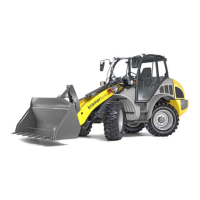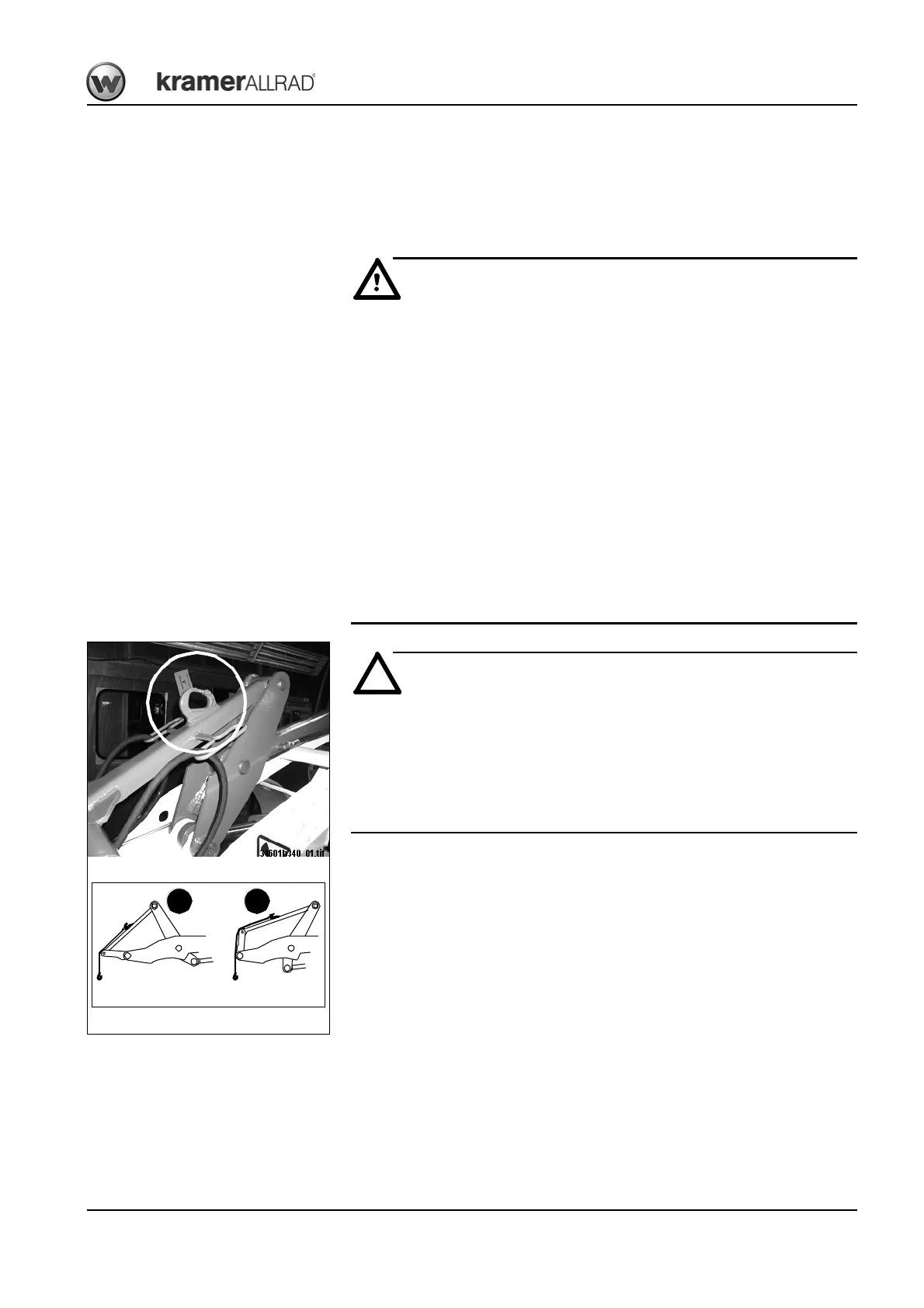BA 35101/02/ 03 EN – Edition 1.0 * 35101_02_03b340.fm 3-93
Operation
3.60 Load hook (option)
Safety instructions regarding work with a load hook
Shaft rings, containers, pipes etc., can be transported with a load hook and suitable lifting
gear (belts, cables, chains).
Observe the following precautionary measures in order to avoid danger of
accidents!
• Read and follow the instructions given in chapter “Safety Instructions,
Applications with lifting gear on page 2-8”
• Bear in mind the load diagram on the front window
• Pick up and set down loads only on firm and level ground
• Make sure the ratchet safely engages in the hook as you hook up the lift-
ing gear (belts, cables, chains)
• Do not use damaged lifting gear
• Adapt your speed to the load as you move it near to the ground
• Persons guiding the load must stay in visual contact with the machine
operator
• Wear safety gloves
• Do not transport loads on public roads
In order to avoid damage to the lifting gear and to the machine, remove the
attachment (bucket, pallet forks etc.) from the quickhitch under all circum-
stances!
☞ Safely hook up the lifting gear (belts, cables, chains etc.) across the quick-
hitch in the load hook (see figure)
☞ Never place the lifting gear over sharp edges
☞ Pick up loads as follows:
• Hook up the lifting gear in the mounts (eyelets, shackles) provided for
transporting the load
• Carefully raise the load and transport it near the ground
➥ Do not exceed the load capacity, see load diagram A in the cab (front window)
Example for reading the load hook diagram:
• A Extended loader unit and quickhitch tilted in
➥ Max N => 2200 kg
• B Extended loader unit and quickhitch
➥ Max N => 1700 kg
N = 1900kgN = 1400kg
1000149082
346-01
Fig. 147: Load hook
Fig. 147: Load diagram for load hook
B A

